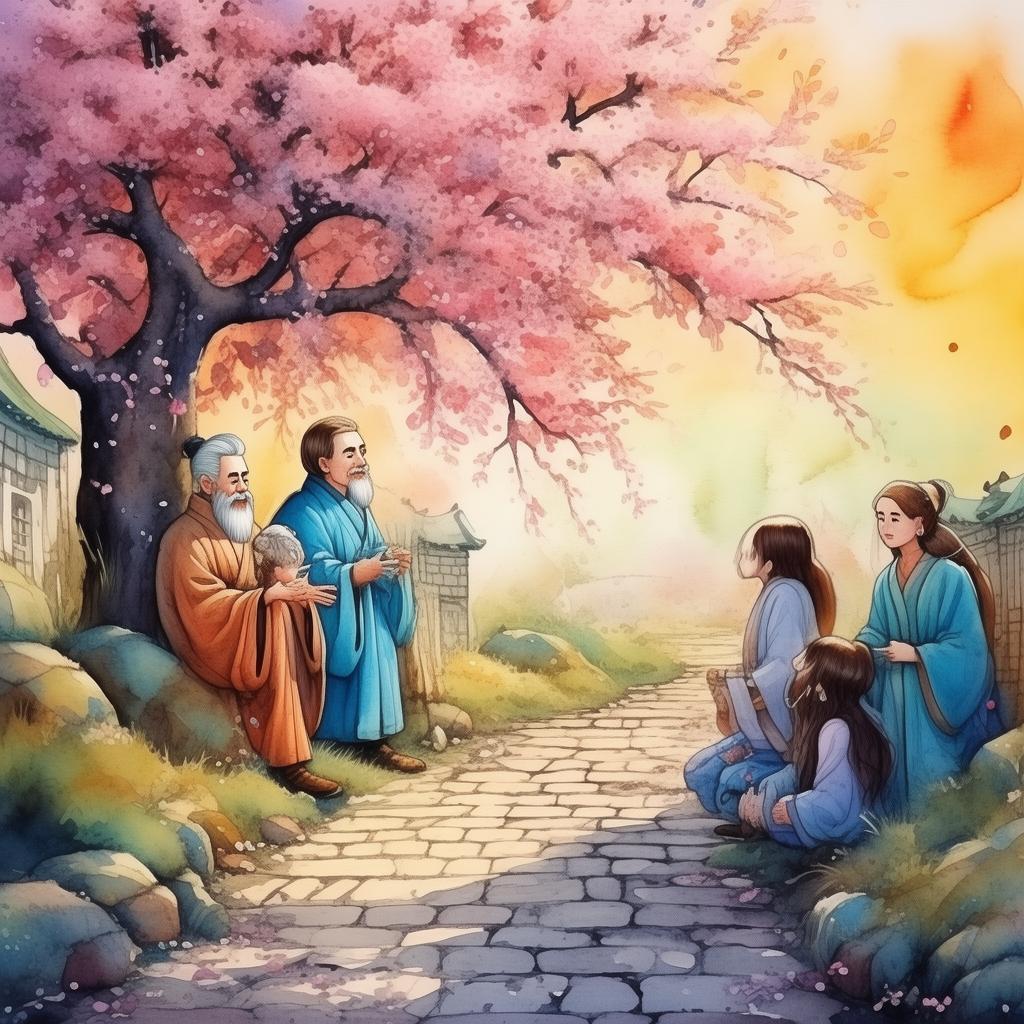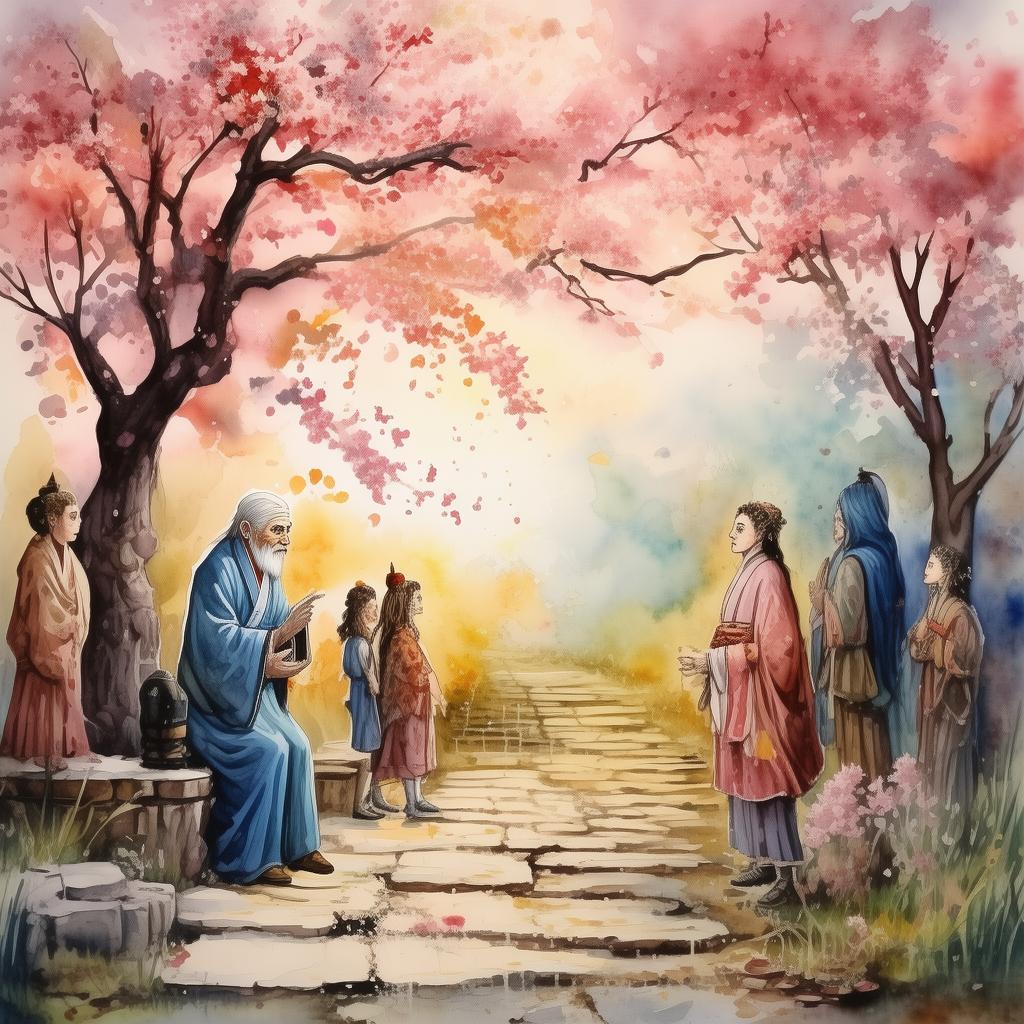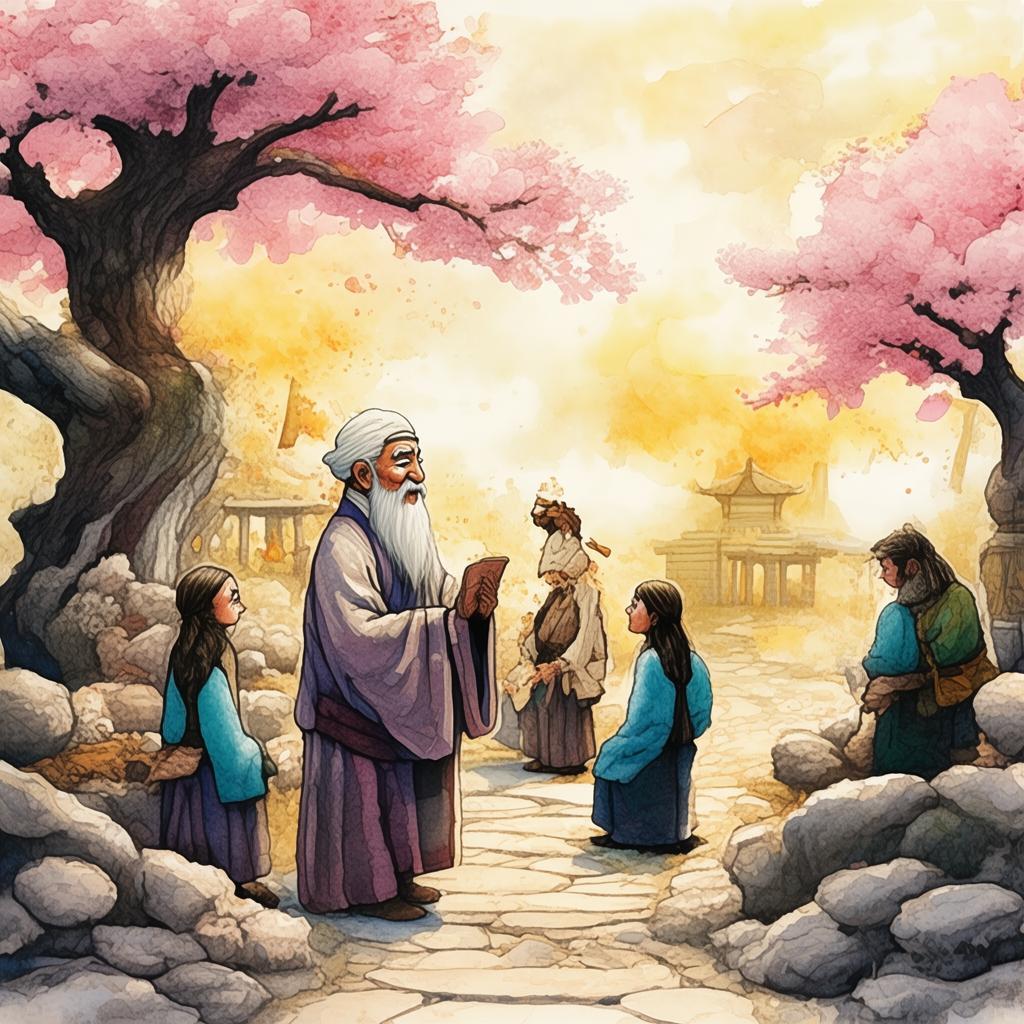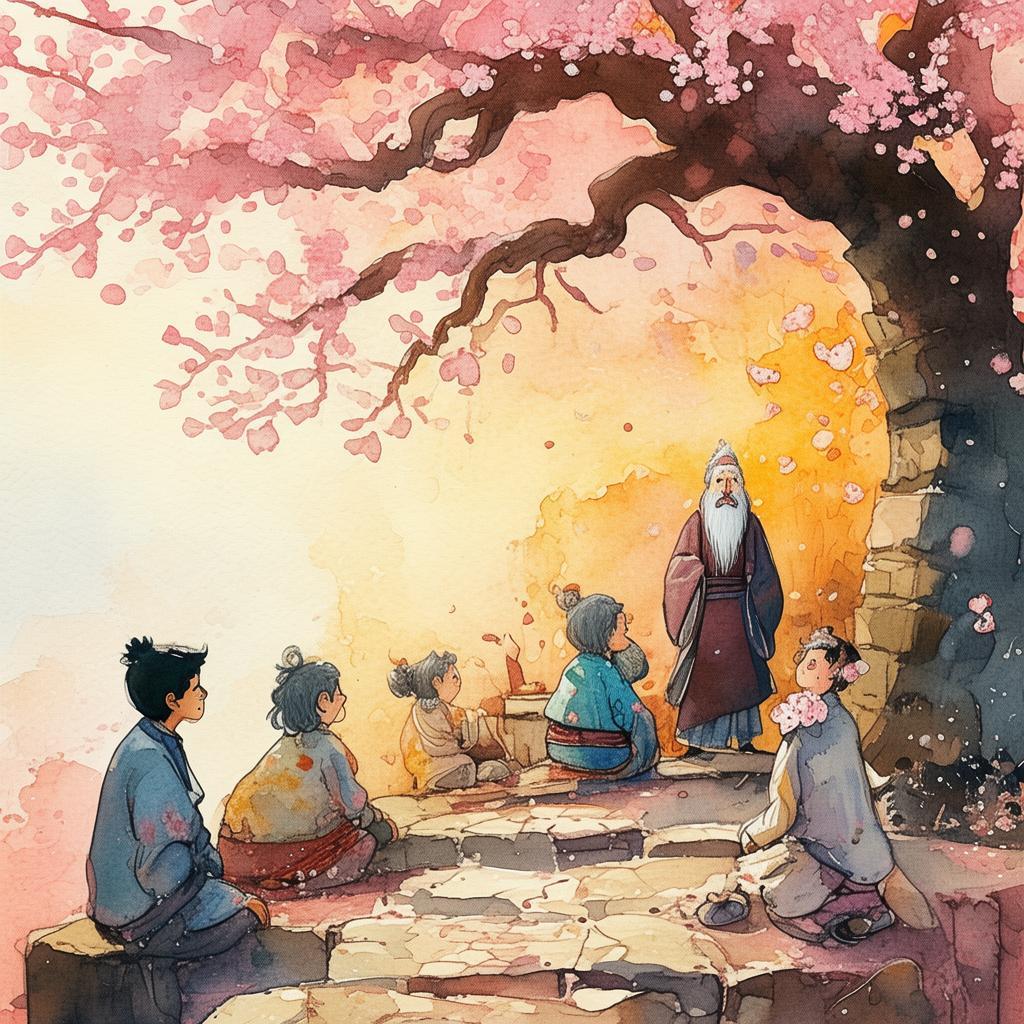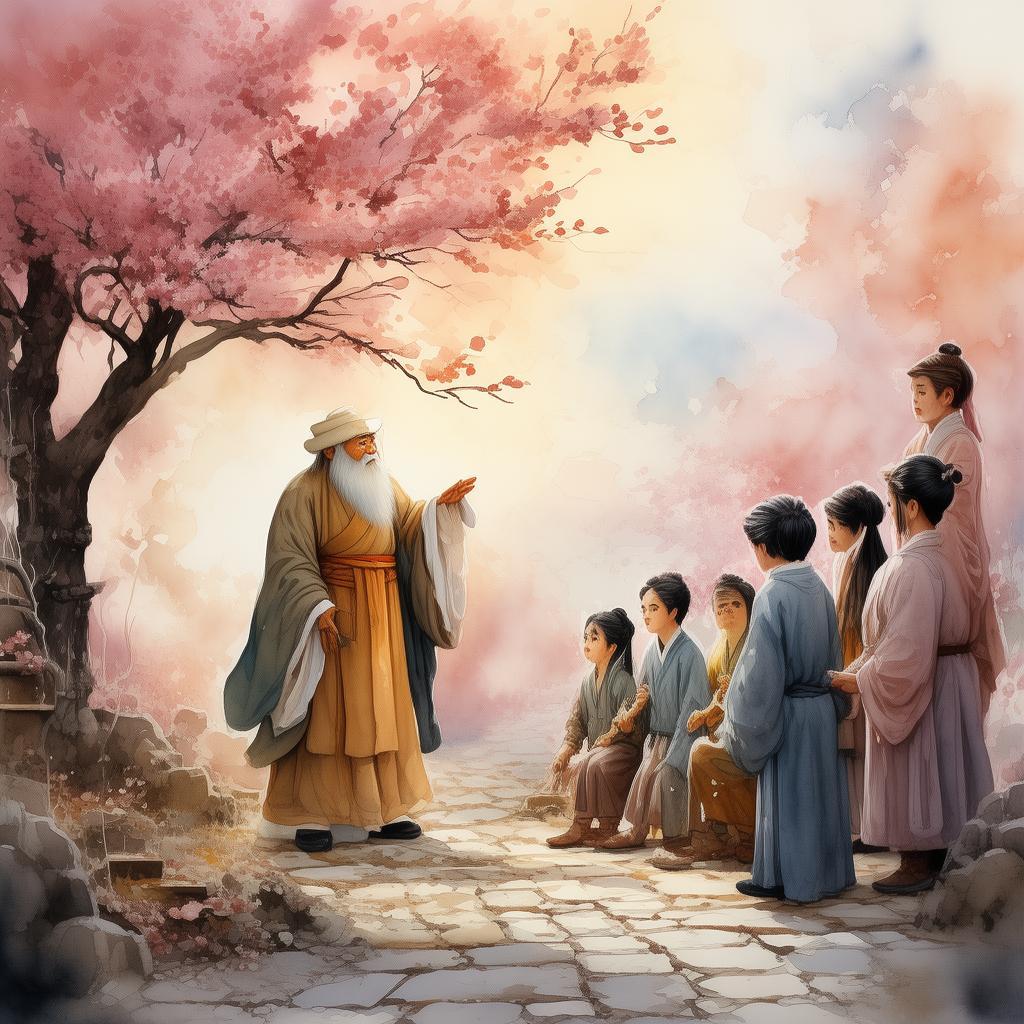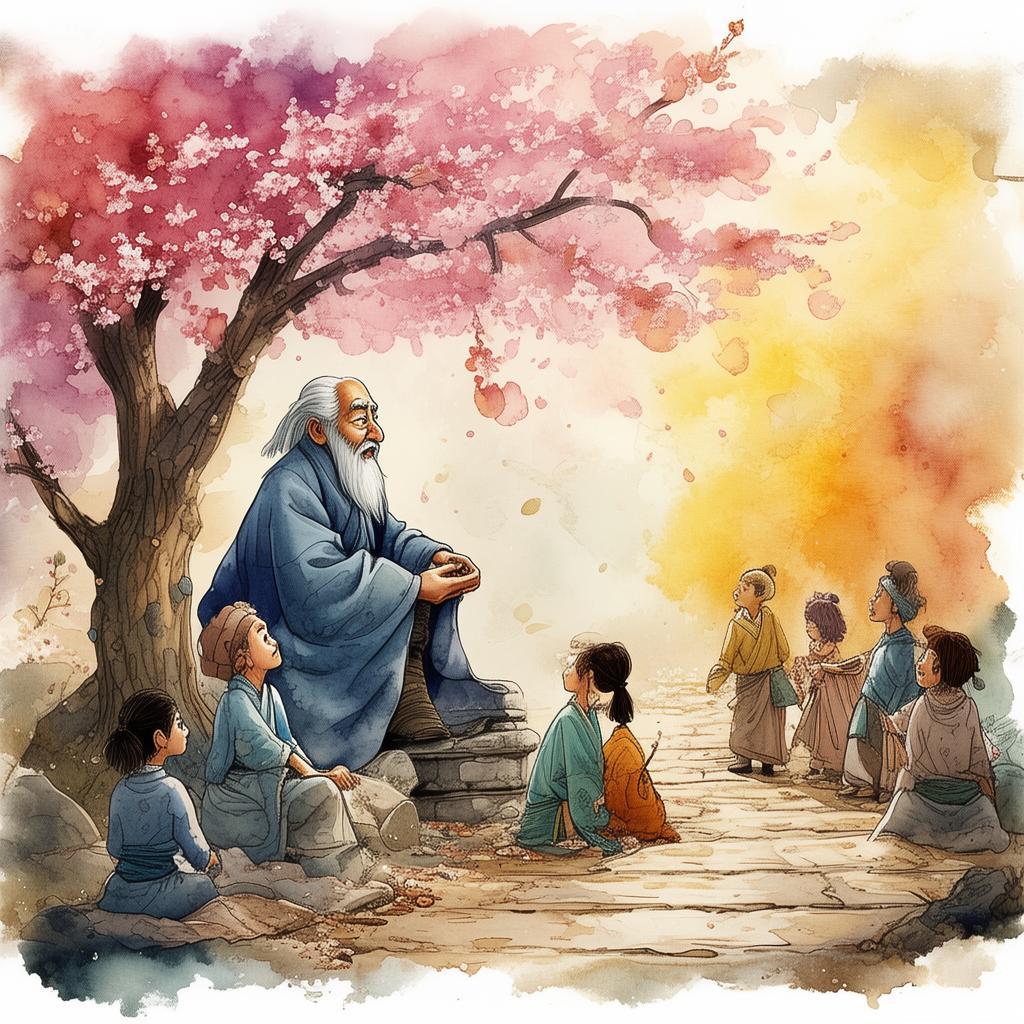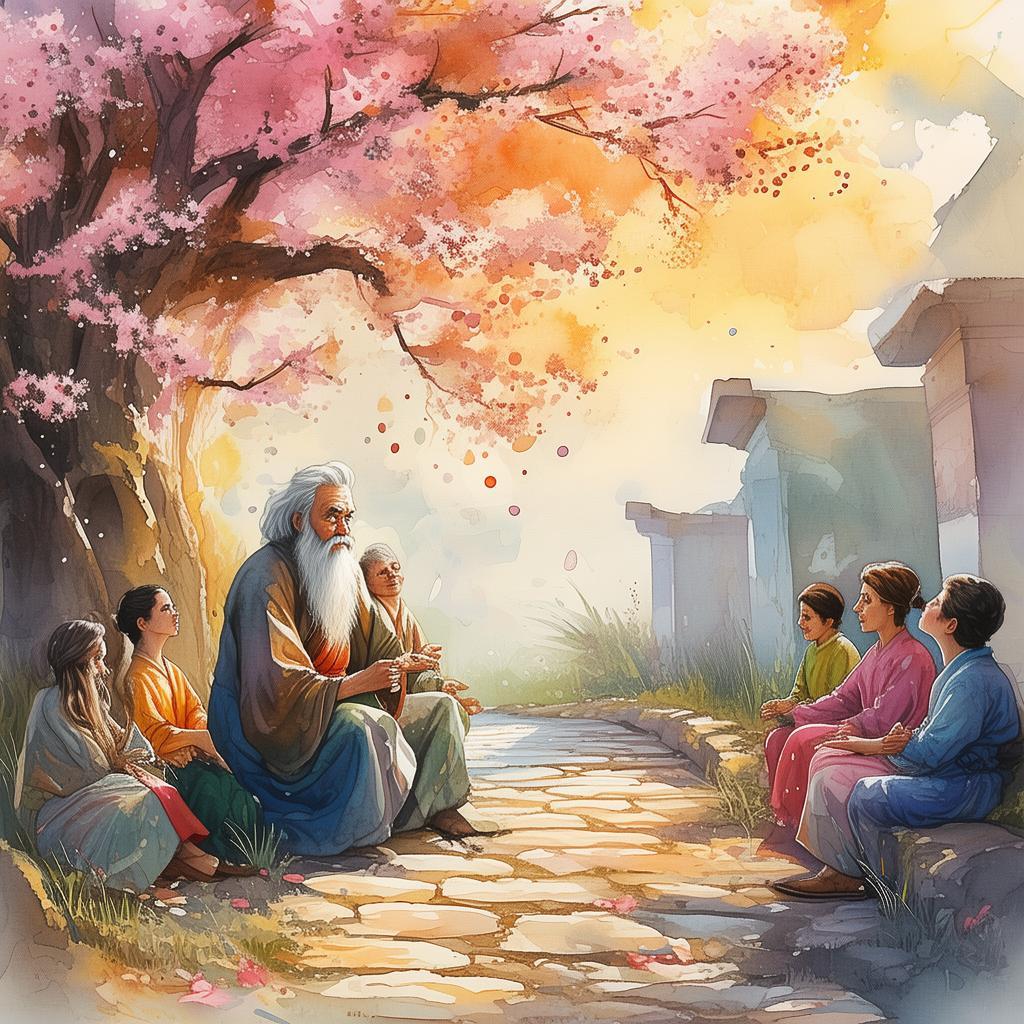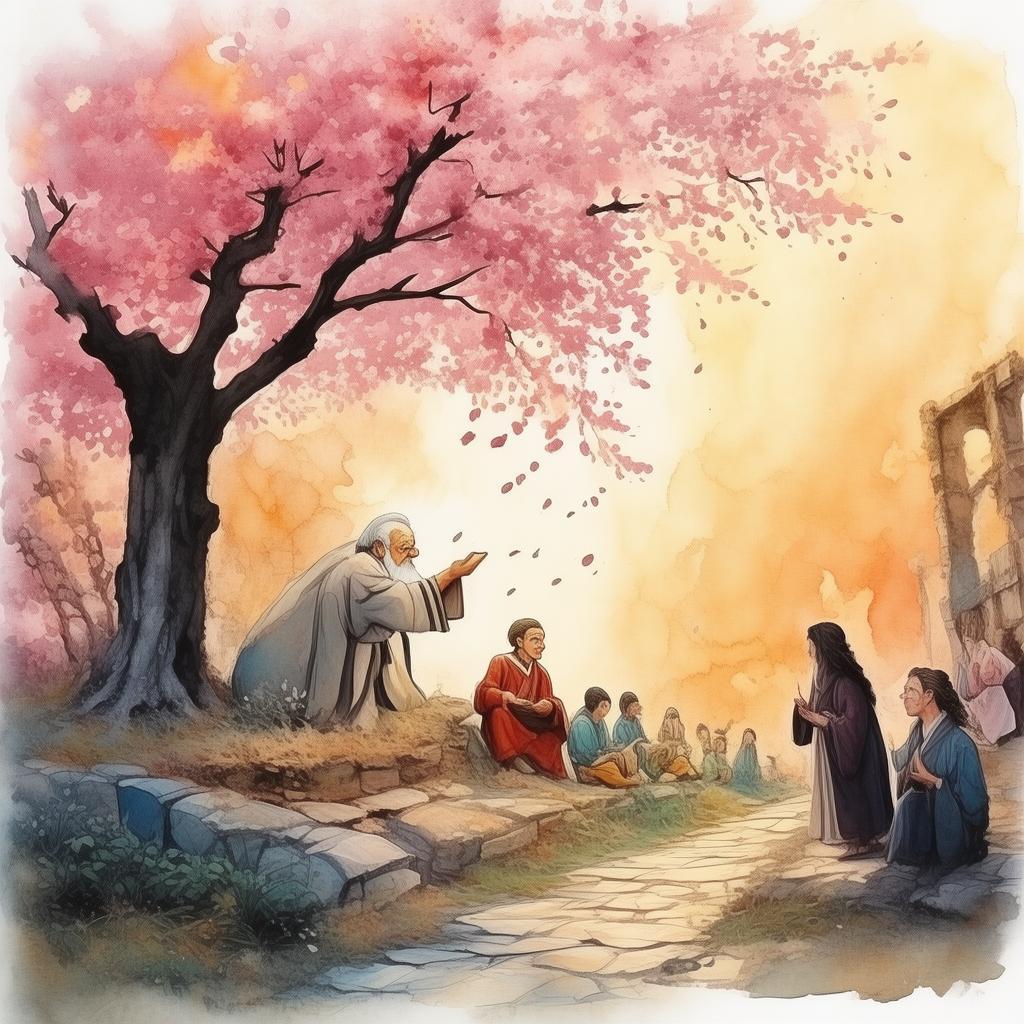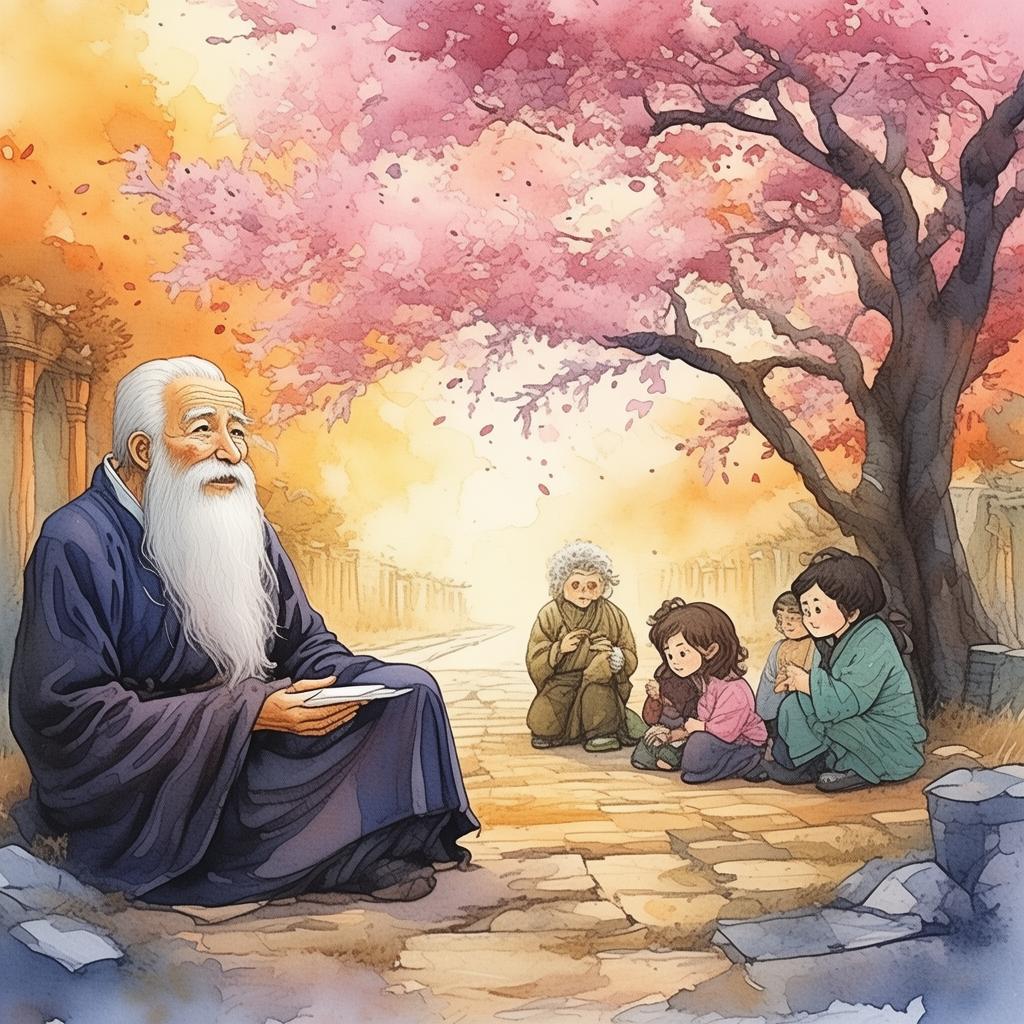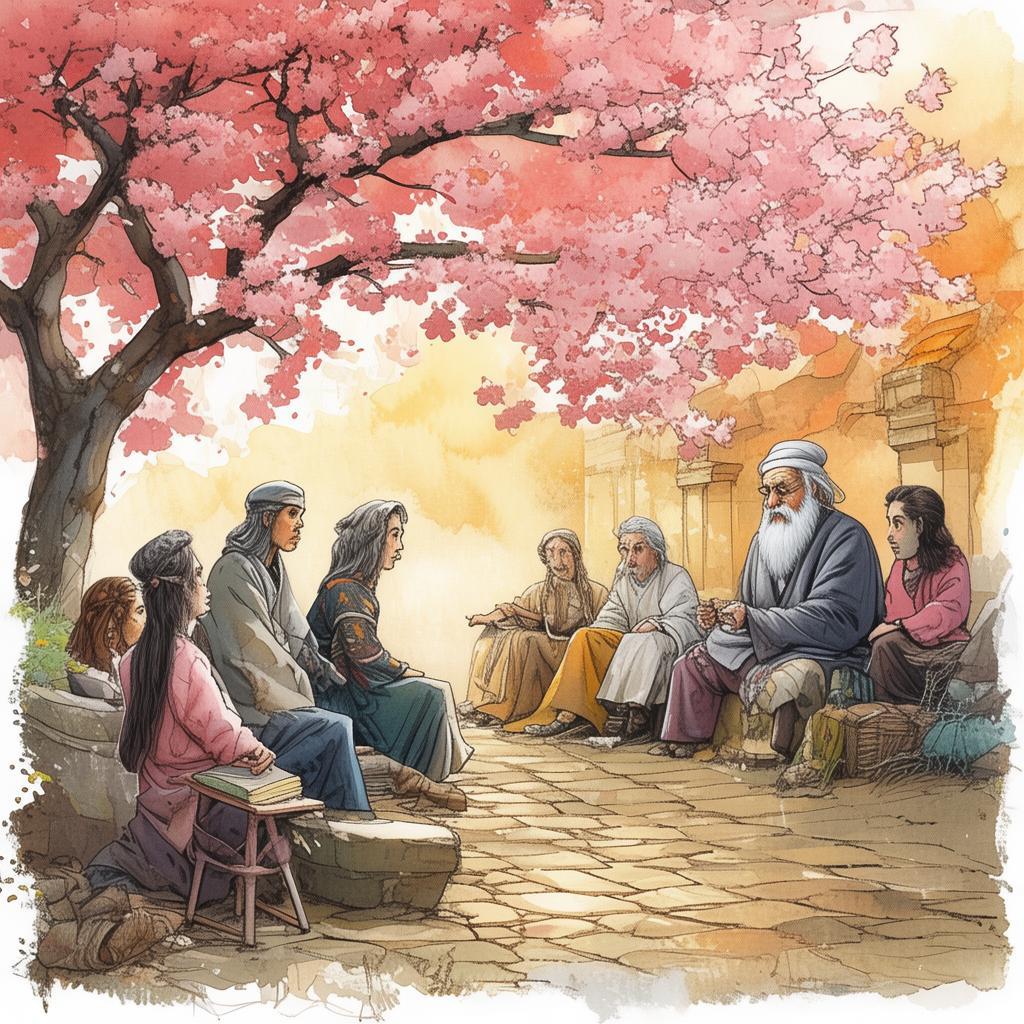The Scribe's Script: The Journey of the Pen and the Heart
In the ancient city of Linyi, there lived a young scribe named Jing, whose life was consumed by the pursuit of storytelling greatness. Jing had read countless books, studied the works of the greatest scribes, and yet, he felt a void in his heart. He knew that greatness was not merely in the words he wrote, but in the emotions they evoked and the stories that touched the soul.
One evening, as Jing sat by his dimly lit lantern, he came across an old, tattered scroll. The scroll was titled "The Scribe's Script: The Journey to Storytelling Greatness." Intrigued, he unrolled it and began to read, only to find that the scroll was filled with riddles and cryptic messages. Each riddle seemed to point to a different aspect of storytelling, and Jing realized that the journey to greatness was not just about mastering the craft, but about understanding the heart of the story.
The first riddle read, "The pen is mightier than the sword, for it can forge worlds and shape destinies. What is the greatest weapon in storytelling?"
Jing pondered the question, his mind racing. "The heart," he whispered. "It is the heart that feels the story, that breathes life into the characters, and that stirs the emotions of the reader."
The scroll continued, "To understand the heart of a story, you must journey into the hearts of those you write about. Only then can you capture the essence of their souls."
Determined to prove his worth, Jing set out on a journey. His first stop was the bustling market of Linyi, where he met a beggar who had once been a renowned warrior. The beggar's eyes held the pain of a thousand battles, and Jing felt a pang of empathy. He listened to the beggar's story, learning that the greatest battle was often fought within the heart, and that true strength came from forgiving oneself.
The next day, Jing visited an old temple, where he encountered a monk who had renounced the world to seek enlightenment. The monk spoke of the journey of the soul, and how stories could help people find peace and clarity. Jing realized that storytelling was a form of healing, a way to help others navigate the complexities of life.
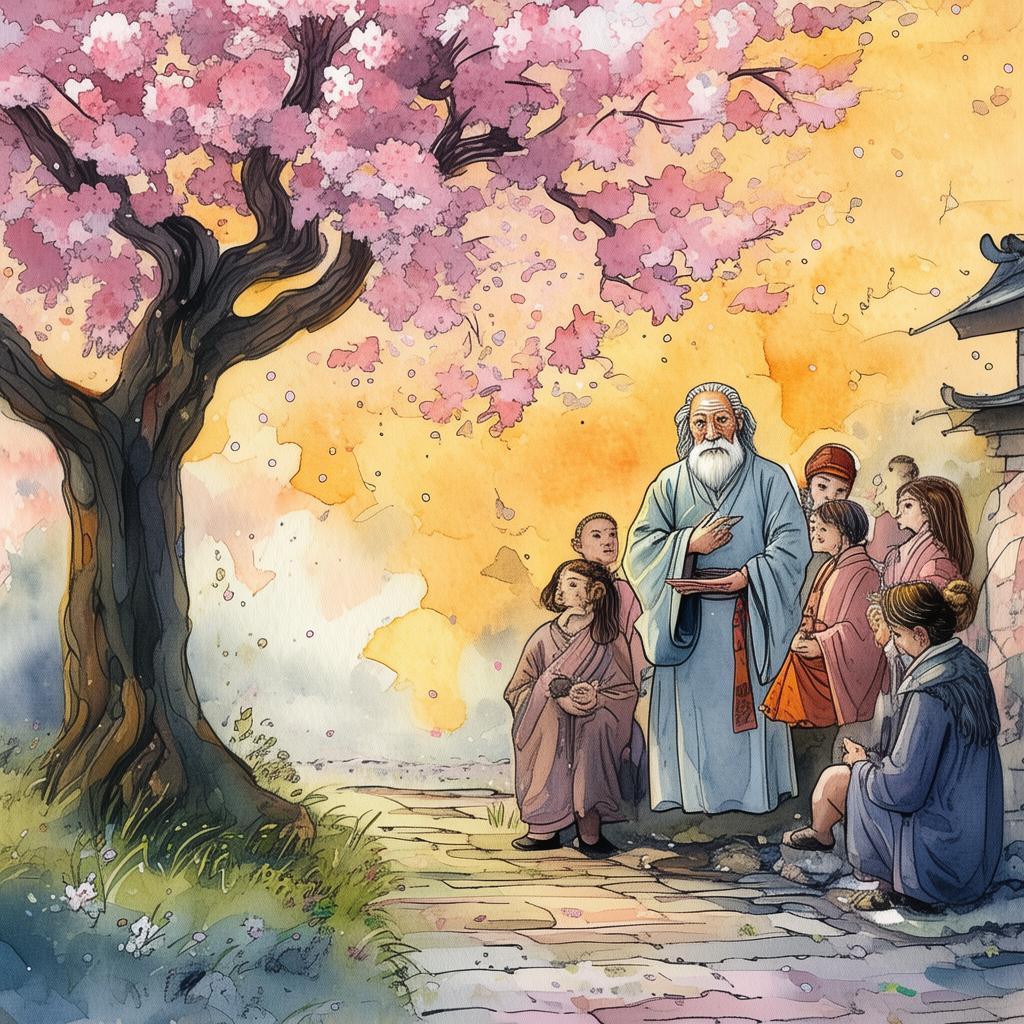
As he continued his journey, Jing met a young girl who had been forced into slavery. Through her eyes, he saw the resilience of the human spirit, and he learned that stories could inspire hope and courage. He met a traveling merchant who shared tales of distant lands, and he understood that storytelling was a bridge between cultures, a way to connect the world.
Each encounter taught Jing something new, and he began to weave these lessons into his own stories. He wrote of the beggar's struggle with forgiveness, the monk's quest for enlightenment, the girl's fight for freedom, and the merchant's journey of discovery. His stories began to resonate with the people of Linyi, and he found that his heart was no longer empty.
One day, as Jing sat by his lantern, he felt a presence beside him. It was the old scroll, now glowing with an ethereal light. The scroll spoke, "You have journeyed far, young scribe, and you have learned much. But remember, storytelling is not just about the journey, but about the destination. The destination is the heart of the reader, the place where your words will touch and transform."
Jing nodded, understanding the scroll's message. He knew that his journey was far from over, but he was no longer alone. With the scroll as his guide, he continued to write, his heart full of stories that would one day touch the hearts of many.
As the years passed, Jing's stories became legendary. They were tales of love, loss, courage, and redemption, and they spoke to the hearts of people everywhere. Jing had found the true essence of storytelling, and his journey had come full circle.
In the end, Jing realized that storytelling greatness was not about the accolades or fame, but about the impact one's words could have on the world. It was about the power of the heart and the pen, working together to create stories that would live on forever.
The Scribe's Script: The Journey of the Pen and the Heart was a testament to the enduring power of storytelling, a reminder that the greatest stories are those that touch the heart and inspire change. Jing had found his place in the pantheon of great scribes, and his legacy would live on through the stories he had written and the hearts he had touched.
✨ Original Statement ✨
All articles published on this website (including but not limited to text, images, videos, and other content) are original or authorized for reposting and are protected by relevant laws. Without the explicit written permission of this website, no individual or organization may copy, modify, repost, or use the content for commercial purposes.
If you need to quote or cooperate, please contact this site for authorization. We reserve the right to pursue legal responsibility for any unauthorized use.
Hereby declared.
